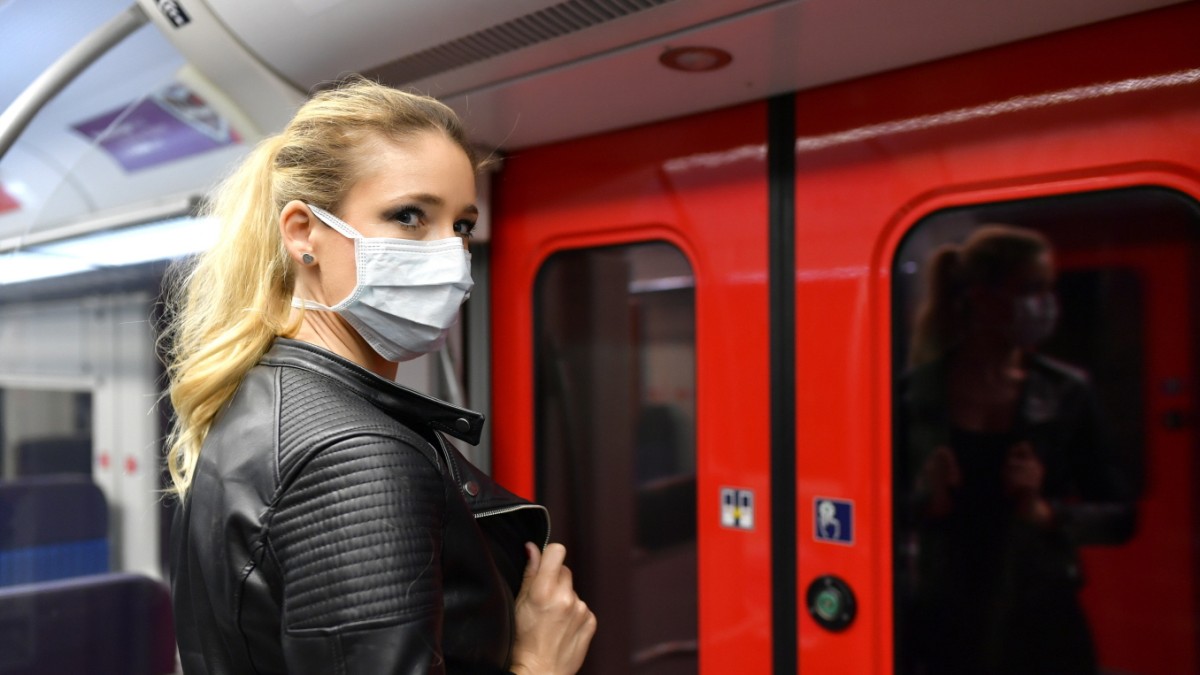Apparently Corona has already disappeared from many minds. Anyone who travels by bus or train regularly or has visited a public building in recent weeks may have noticed that the Corona rules are no longer observed or applied as consistently. In other words, fewer and fewer people are wearing a mask. Although there are actually severe penalties for violations. Even the state government is showing signs of laissez-faire in dealing with the virus. Last Friday, Bavaria announced that it would abolish the corona isolation obligation together with three other federal states. As of Wednesday, new rules should therefore apply in many areas. An overview.
General obligation of isolation
Basically, the following applies: The five-day minimum isolation requirement for corona-infected people is a thing of the past. However, those who test positive are expected to wear a mask outside their homes for the first five days. In addition, there is a ban on entering and working in medical and nursing areas with vulnerable groups of people and in some communal accommodation, even for five days. According to the Ministry of Health, the protective measures continue to apply until there is at least 48 hours of freedom from symptoms. However, even in the case of symptomatic people, they end after ten days at the latest.
Federal Health Minister Karl Lauterbach has already criticized these plans last week. “This comes at an inopportune time and does not find approval from the federal government,” said the SPD politician. He spoke of a mistake and warned of a “patchwork” with different isolation rules in the federal states. “Furthermore, there is no medical reason to waive the isolation obligation now,” Lauterbach said. There are about 1,000 deaths from Covid a week, one is facing a “probable severe winter wave” and is “on the eve of a more contagious variant”. It is therefore not really responsible to remove the obligation of isolation.
Bavarian Health Minister Klaus Holetschek (CSU) cannot share Lauterbach’s concerns: “We are not giving free rein to the pandemic. After consulting the experts, we have decided on a package of protective measures.” This strikes a balance between personal responsibility and the protection of vulnerable groups of people. The number of infections, which has been declining for weeks, seems to partly prove Holetschek right, at least for the moment. On Tuesday morning, the Robert Koch Institute reported an incidence of 150.8 for the Free State.
bus and train
In long-distance trains, the obligation to wear a mask still applies under federal law. In local transport, on the other hand, the countries decide. Bavarian Prime Minister Markus Söder (CSU) has now introduced a relaxation of the mask obligation to protect against corona infections in local public transport. “If the infection situation remains the same, we will think about making masks mandatory in local public transport,” Söder said in an interview with a newspaper. So far, however, the state government has not taken any decisions in this direction. The Corona rules of the Seventeenth Bavarian Infection Protection Measures Ordinance (17a BayIfSMV). You still have to wear a medical mask (surgical mask) on buses, trains and taxis.
After that, however, the obligation to wear a mask in public transport could end. Hubert Aiwanger (Free Voters) sees a certain probability that the coalition will decide in the coming weeks to lift the mask obligation on December 9th. “It would be an apt day if there weren’t completely new and dramatic developments.” Schleswig-Holstein had already announced a few days ago that it wanted to overturn the obligation to wear masks on buses and trains. Since 1 October, there is no longer a general obligation to wear face masks in air traffic within Germany.
schools
Upon request, both the Ministry of Education and the Ministry of Health write almost identically: Basically, the same rules apply to schools as they do to the rest of the Free State. In other words, those who have tested positive no longer need to isolate themselves, but must wear a mask for the first few days. After the cabinet meeting on Tuesday, the head of state Florian Herrmann said: “Separation is no longer necessary. This applies to all areas of life, therefore also applies to school. It is the leap from the pandemic to normality” . Economy Minister Hubert Aiwanger added: “When a child is sick, it makes more sense to stay at home. If he tests positive, it also makes sense to stay at home for a few days.” But if the parents insist that the child go to school, then he must wear a mask there for these few days.
In view of the meeting, the representatives of the Bavarian teachers’ associations had asked for clear and implementable rules “which allow safe face-to-face teaching for all those involved”. However, the measures in schools should not differ too much from the otherwise applicable standards, otherwise there may be problems with acceptance. Furthermore, science and policy makers need to clearly define what “sick” or “contagious” means.
clinics and nursing homes
Visitors whose corona test is positive are not allowed to visit these facilities. Exceptions apply to recovery day centers. The ban on working in these areas also applies to employees, operators or volunteers who have tested positive. However, with exceptions: According to the Ministry of Health, the ban does not apply to day rehabilitation centers and to employees, operators and volunteers of hospitals, prevention or rehabilitation facilities, total and partial inpatient facilities for reception and care of handicapped persons and rescue services, as the aforementioned persons in each area without vulnerable people are deployed. If the test is positive, there are also bans on entering and working in homeless shelters, community facilities for asylum seekers and prisons.


